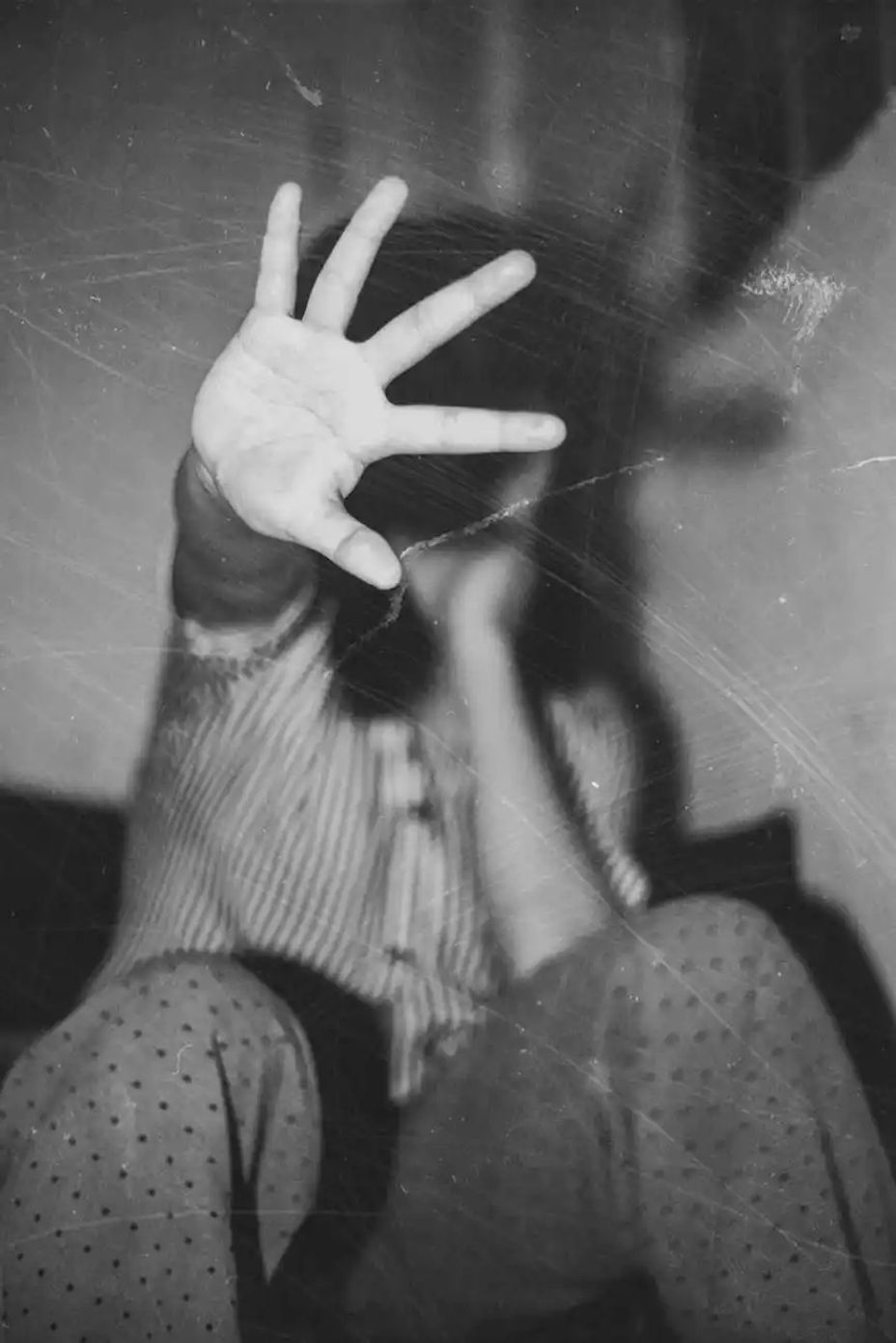Really Struggling - could use some tips
Hi all, my CRPS is really flaring at the moment (stress + grief). And my normal techniques (heat pad, tens machine) aren't working. Any ideas? #CRPS #ComplexRegionalPainSyndrome #ChronicPain
Hi all, my CRPS is really flaring at the moment (stress + grief). And my normal techniques (heat pad, tens machine) aren't working. Any ideas? #CRPS #ComplexRegionalPainSyndrome #ChronicPain
Hi all, my CRPS is really flaring at the moment (stress + grief). And my normal techniques (heat pad, tens machine) aren't working. Any ideas? #CRPS #ComplexRegionalPainSyndrome #ChronicPain
Hi, my name is Odd_Elle. I'm looking for support and wanting to provide support for others who are suffering.
I’d love to exchange experiences and share suggestions for the disease- CRPS/RSD.
#MightyTogether #Anxiety #Depression #PTSD #Grief #Migraine #crps #rsd

Lately, I’ve been experiencing intense rejection sensitivity. I’ve gone through some circumstances that triggered these heavy emotions, and I must admit, they’ve been difficult to manage.
Over the holiday season, I felt left out. Unwanted. Unthought of.
I had been told by my family that everyone was doing their own thing this year. So, when Christmas Eve came around, I assumed there were no plans. But then my cousin texted me, casually asking if I was going to our other cousin’s house for dinner.
I had no idea what she was talking about.
I told her I must have missed the invite. That’s when my dad got involved. He reached out to his sister to ask why I wasn’t invited, and suddenly the story shifted. It was made to seem like I had been invited all along.
But that wasn’t true. Because if I had been invited, I would have been there.
I’m a stickler for tradition. I like things to stay the same, especially around the holidays. Family dinners are one of those traditions. So, finding out about plans after the fact felt jarring, like I had already missed something important without realizing it.
Eventually, the cousin who was hosting texted me and said, “Oh, you can come? I thought you were cooking?”
By that point, I already was.
I had made plans based on the information I was given, so I kindly told her I couldn’t make it after all. And then… nothing. Complete silence.
I followed up, trying to smooth things over. “I hope we can hang out soon.” No response. No reassurance. And no acknowledgment. Just silence.
I felt embarrassed that a scene had been made at all. Embarrassed that my dad chose to step in. And now, I can’t shake the feeling that everyone sees me as this fragile person who acts up when she feels left out.
This all stems from wanting inclusion because silence can often feel louder than words.
Before logic can remind me that people get busy or distracted, my mind and my body has already decided that something is wrong. Silence, to me, feels like distance. And that distance feels like rejection.
There’s been another thing that’s been irking me lately. One of my best friends is getting married. She’d told me about the engagement, but I hadn’t heard from her since. I had to find out through other friends what the plans for her wedding were. Turns out she’s getting married later this year in Romania. So, me having the RSD I have, I certainly can’t miss it.
I’m also going out there for my birthday in a few days, and I had planned to stay in Portland for a week. Come to find out, she’s having her engagement party later on that month. I was perplexed and confused as to why she couldn’t have planned it while I was already in town. But once again, I have a fear of missing out, so I decided I will most likely stay for the whole month just so I won’t miss it.
But what hurts most? The silence, yet again. There has been no communication between the two of us, and it hurts my feelings so much to learn about everything she’s planning through other friends. It makes me feel like I’m unwanted, or just not even thought of at all.
I’ve been contemplating talking to her about the distance I feel, but I’m afraid she might actually tell me she doesn’t want to be friends anymore. Deep down, I know she would never, but still, these thoughts cross my mind whether I like them or not.
When I reflect and look at these moments side by side, I see a clear pattern. It isn’t just about holidays or weddings or missed plans. It’s about silence and what silence activates in me.
This is what rejection sensitivity looks like for me.
When communication drops off or plans change without explanation, my body quickly fills in the gaps, often with fear, self-blame, and doubt.
What makes it so hard is that what I want in those moments isn’t conflict or confrontation. It’s clarity, inclusion, and knowing that I matter enough to be thought of, considered, remembered.
But speaking up feels too risky. There’s always a quiet fear in the background: What if saying something confirms what I’m already afraid of? So, I hesitate, stay quiet, and swallow my feelings. I try to regulate myself before reaching for connection, even when the silence is what’s hurting me most.
These reactions aren’t about the present moment alone. They’re layered with memory. With past experiences of being misunderstood, overlooked, or made to feel like I was too much to handle. I remember those moments, even when my rational mind wants to give people the benefit of the doubt.
I’m still learning how to sit with this sensitivity without turning it inward. To remind myself that wanting inclusion doesn’t make me needy, and needing clarity doesn’t make me difficult.
Silence may always register loudly in my body, but that doesn’t mean I’m wrong for feeling it. It means I care deeply about connection, and I’m learning how to hold that truth.
When you notice silence from someone you care about, how does your body react before your mind can process it? How might you respond differently knowing it could be about them, not you
“The greatest thing in the world is to know how to belong to oneself.” – Michel de Montaigne
#MentalHealth #Neurodiversity #ADHD #Anxiety #Depression #AutismSpectrumDisorder #Autism
Hi, my name is Briedi. I'm here because I have family member suffering with CRPS and I read Alyssa Laurens "what station 19 got wrong" so found this site

Most of the time, I keep it all together. I don’t like drama or confrontation of any sort, so I keep the peace, keep it calm, maintain a vibey flow. I put on a smile when I’m feeling down. I manage because I don’t want to let my walls down and let others see my pain. I never want to burden anyone with my problems, so I keep them tucked away.
I’m also not comfortable expressing myself, even with my closest friends, because I can’t get through a sentence without tears welling up. I just don’t like showing that side of myself.
When Everything Boils Over
But there are times when everything boils to the surface. When I crack. When I explode into an array of emotions.
It happened just the other day during an intense RSD episode. I took an idea, ran with it, and ended up harming others and myself. I made this whole big thing out of nothing, and now I’m left feeling embarrassed, guilty for jumping to conclusions, and hurting the people closest to me by calling them out.
“Most of the time I keep it together. But underneath it all, there’s this underlying exhaustion.”
Exhaustion from trying to keep up appearances, trying to be put together, trying to hold myself in check while my mind and body are carrying a heavy load.
The Weight of Depression
Lately, I’ve been going through a major bout of depression. I don’t even know what triggered it—whether it’s seasonal, situational, or the weight of too many unresolved stressors piling up at once. My habit is to push it all to the side, essentially erase it from my brain until it all reaches the surface.
And when that happens, I’m forced to confront it. My emotions go all out of whack. I cry. I scream. I meltdown. I freeze. I feel everything at once.
It’s a major heavy load to carry. I feel like I’m always walking around with a rock tied to my shoulders. I’m always tense, always doubtful, always anxious.
And yet, I still manage to keep it together. I keep it together because I don’t want to burden anyone. I keep it together because I don’t want people to see how much I’m struggling. I keep it together because that’s what I’ve always done.
The Cost of Keeping It Together
But it comes at a cost. Holding it together is a vicious cycle of “pretend I’m okay” while being emotionally and physically exhausted. It’s carrying so much inside and rarely letting it out until it all erupts. And even then, even in the explosion, it feels messy and hard to handle.
This is the quiet cost of always holding it together.
It’s not something that people notice because from the outside I look fine, capable, calm, functioning. But inside, there’s a constant effort to stay composed, regulated, and to keep everything from spilling over.
I’m learning that holding it together all the time is more about survival than strength. And surviving this way leaves very little room for rest. It leaves me holding everything alone, even when I don’t need to.
Learning to Loosen the Grip
I don’t suddenly know how to let my guard down or express myself without tears. But I’m starting to recognize the pattern.
Maybe the work isn’t about falling apart or fixing it all at once. Maybe it’s more about loosening my grip just a little and stop pretending I’m okay when I’m not.
Because constantly holding it together has a cost, and I’m learning that I don’t have to pay it alone.
Where in your life are you holding it together at the expense of your own well-being?
“You don’t have to control your thoughts. You just have to stop letting them control you.” – Dan Millman
#MentalHealth #Neurodiversity #Depression #Anxiety #ADHD #AutismSpectrumDisorder
Hi, my name is Jacqui2025. I'm here because I have chronic back pain and Complex Regional Pain Syndrome in my left hand. It is making me very depressed and I would like to learn how other people with chronic pain manage.

I experienced a heavy wave of rejection last night.
I noticed that my close friends had gathered together for what I can only assume was a New Year’s celebration. The thing is—I didn’t get an invite. The day before, I had spoken to one of them and we’d made plans to hang out. When the evening came and I hadn’t heard anything, I reached out. No response.
Fifteen minutes later, I saw a friend post an Instagram story of them all together, laughing and having a great time.
I texted again, asking about the get-together. Still nothing.
I felt incredibly hurt—overlooked, unseen, invisible. In my body, the pain was joined by rage. My immediate reaction was to cut them off entirely. That you don’t care, so I don’t care instinct kicked in hard. I wanted to go for the jugular and make them feel as hurt as I did.
But I’ve lived with RSD long enough to know how this usually goes.
It always gets turned back on me. I become the bad guy for having feelings at all.
Rejection sensitivity dysphoria doesn’t just show up in dramatic moments. It lives quietly inside everyday social dynamics. Missed invitations. Unanswered texts. A shift in tone. For many people, these moments sting and pass. But for those of us with RSD, they can feel catastrophic, as if our sense of safety, belonging, and worth is suddenly on trial. It’s not about wanting special treatment. It’s about how our nervous systems interpret perceived rejection as something deeply threatening.
I vented to other friends. I know they were trying to help, but nothing they said landed.
“Tell them how you feel.”
“They love you—they didn’t do it on purpose.”
“They probably just wanted to keep it small.”
To me, it all felt like phony bologna. If they cared, wouldn’t they have invited me?
Instead, I felt like an afterthought—or worse, not a thought at all. Like they secretly don’t like me, or maybe even loathe me. I’ve known these people for over twenty years. You’d think I’d cross their minds.
I know adulthood creates distance. Life happens. People move away. Some stay. I stayed too. But this group was once incredibly close. And now, the friends I still have here don’t seem to want to see me very often. My truest friends live out of state.
So, I’m lonely here. I’m alone. And when you’re lonely, everything feels sharper. Louder. More painful.
I know how this probably sounds to some people.
Why can’t she just get over it?
Why can’t she see it wasn’t intentional?
Believe me—I hear those thoughts too. And every time, they come back to bite me. I end up feeling foolish. Too emotional. Too reactive. The one who jumps to conclusions too fast.
Rejection sensitivity follows me everywhere. It leaves a lasting imprint. Today, I still feel hurt—and I know I’ll think about this for years. I’ve already laid there numb and crying, replaying every possible scenario. Every why. Every what if.
Now, I feel guilty. Guilty for venting. Ashamed for calling a few of them out and saying they all suck. Once again, my RSD has painted me as the villain.
I wish people understood how consuming and painful rejection sensitivity dysphoria can be. It’s real. It’s not something you can simply control or logic your way out of. My reactions are instinctual—and often turn inward in self-destructive ways before I even realize what’s happening.
RSD shows up when you least expect it. But it’s also always there, waiting—ready to crack and shatter you into a million pieces.
RSD is closely tied to ADHD and autism. I have both. So, for me, it’s ever-present. A given. I just want more control over it. and I want to think clearly without being clouded by intrusive thoughts. I want space between the trigger and the spiral.
It’s hard to live this way—especially when people don’t understand you.
Have you ever reacted strongly to feeling excluded or overlooked—and later wondered if rejection sensitivity played a role in how deeply it affected you?
“Rejection sensitivity doesn’t mean I am too much. It means my nervous system has learned to brace for loss.” – Unknown
#MentalHealth #Neurodiversity #ADHD #ADHDInGirls #Anxiety #AutismSpectrumDisorder #Autism

All it took was two words… “I know.”
Two simple syllables that she probably didn’t think twice about. Two ordinary words that anyone else might have brushed off without a second thought. But for me, those two words hit me like a punch straight to the chest.
One of my best friends was visiting from out of town. She was staying for a few days, and because we rarely get to see each other, I wanted to soak up every moment that I could. We spent time with friends, went to an event in the city, laughed, caught up, and just enjoyed each other’s company.
But the moment I said goodbye changed everything.
When we hugged, I told her how much I loved her. I probably said it a few times because I genuinely meant it and wanted her to feel it. Maybe I wanted to make up for the physical distance between visits. Maybe I wanted that reassurance without even realizing it. It could’ve been both.
And her response, said casually, almost automatically, was simply:
“I know.”
It wasn’t rude. It wasn’t dismissive, at least not intentionally. Just a mere response. But when those words hit my ears, something inside me shattered. It felt like I had exposed something precious and tender. I shared my love, my excitement, my vulnerability, and it was met with a shrug.
Or at least, that’s what my brain told me.
That’s what rejection sensitivity does. It turns an ordinary moment into an emotional earthquake.
And that small moment, that simple phrase, stuck with me. I replayed it in my mind over and over and wondered If I was being too much. I was worried that she didn’t mean it back. My brain spiraled quickly, like it always tends to do.
This is what rejection sensitivity feels like for me. It’s not about what people do. It’s about how my nervous system reacts. I feel everything so deeply, and the slightest perceived brush-off can send me into a barrage of shame, panic, and hurt.
What Rejection Sensitivity Actually Feels Like
Honestly, there isn’t a single day where I’m not affected by my rejection sensitivity. It’s something that sits with me in every interaction, every conversation, every moment where there’s even a possibility of misunderstanding.
Something as small as a car horn can send me spiraling. If someone honks at me while I’m driving, I immediately assume that I did something horribly wrong. My body reacts instantly—my heart races, my stomach twists, and this wave of embarrassment washes over me. I take it personally, even though I rationally know it’s just a noise.
That’s the exhausting part. My mind understands logic, but my body doesn’t.
Living with rejection sensitivity feels like you’re walking on eggshells, every emotion trembling just beneath the surface, waiting for the smallest trigger. Everything touches you, and everything gets in, even things that were never meant for you.
When someone rejects an idea that I share, I feel it physically. My heart pounds through my ears, I start trembling, and a shockwave of emotion just shocks my nervous system. It all happens in a matter of seconds. It’s not because I think my idea is perfect, it’s because rejection hits in me in the most personal way possible. It hits that vulnerable part of me. The part that tells me I’m “not enough.”
Criticism is another story entirely. I don’t handle it well, and I wish I did. My reaction tends to swing in one of two directions: I either collapse inward and cry, or I burst outward in frustration because the pain is too big for my body to hold. It’s not that I don’t want to improve, it’s just that criticism feels like an attack on my entire being.
Early Lessons: Learning to Hide
Growing up, I learned rather quickly that if I stayed quiet enough, stayed small, invisible even, I could protect myself. My Quietness became my shield. I figured that if I didn’t attract attention, I couldn’t be judged. If I didn’t volunteer answers, no one could point out if I was wrong. If I kept my thoughts to myself, no could use them against me.
I remember being in elementary school, sitting in the back of the classroom, observing while my peers confidently raised their hands. Their energy was magnetic, drawing smiles and praise from teachers. I always wanted to participate, but the thought of being wrong paralyzed me. So, I stayed silent, and the let others take the spotlight. Early on, I learned to disappear into the background, thinking that my invisibility kept me safe.
One time in college, I was required to give a speech. I remember it being well thought out, well written. I had rehearsed it over and over again and memorized each word. But when it came time to present, I nearly had a panic attack. My hands were shaking, my voice was stuttering and cracking, and I started sweating profusely. While everyone else seemed to get through their speech with ease, I was the only one that had this kind of reaction.
I went home feeling so ashamed and embarrassed, thinking that my worth was tied directly to how others perceived me. That moment stayed with me. Even now, I can still feel the humiliation, the awkwardness, and the overwhelming discomfort.
But truthfully, hiding isn’t the same as healing. And while my quietness protected me from immediate judgment, it didn’t prevent the internal hurt that built up over time.
My rejection sensitivity has shaped me in ways I didn’t even realize until recently. It taught me to be a people-pleaser, to say yes to everything, to make myself constantly available so no one ever had a reason to be disappointed in me. It taught me to anticipate criticism before it happened to adjust myself so that no one ever got upset. And it took a toll on me. It drained every part of me—my energy, my confidence, my boundaries, my joy. But it was all I knew how to do.
The Need for Reassurance
I never liked to admit it, but I need reassurance. I need to know that everything is okay, that people still care, and that they still want me around. Compliments are awkward for me because I don’t know how to receive them, but on some level, I’m searching for any sign that I’m valued.
I remember a group project in high school. I did all of the research, stayed up late crafting the final presentation, and essentially carried the entire assignment on my back. My group mates assumed that because I was the quiet, agreeable one, I would just handle everything. And even though I felt taken advantage of, the people-pleaser in me couldn’t bring myself to say no.
After we presented, I felt mortified. My group mates didn’t know the material at all. I had tried to teach them, but they either didn’t grasp it or simply didn’t care. Either way, the presentation was a disaster — and somehow, I felt like it was all my fault. Even though I was the one who put in all the effort, my hard work went unnoticed, and I didn’t receive the praise and reassurance I desired.
When rejection sensitivity gets triggered, even in the smallest ways, the inner narrative in my mind becomes brutal. I assume that everyone hates me, that I messed everything up, ore that I’m not good enough. These aren’t just dramatic thoughts, they’re automatic, and they take a major toll.
RSD affects every part of my life—my friendships, my work, my communication, my self-worth. It makes me second-guess everything that I say, everything I do, and whether people actually want me around. It makes small misunderstandings feel like catastrophes. And it leads to spirals.
email me for more:)
#MentalHealth #Neurodiversity #ADHD #ADHDInGirls #Anxiety #Depression #rejection sensitivity dysphoria

Being behind in life is something I never really foresaw in my future. I assumed that I was doing everything “right,” following the path I was supposed to. I kept up academically — even socially at times — but deep down, I knew I didn’t quite match others emotionally.
Rethinking Emotional Intelligence
I used to believe I was emotionally intelligent because I was empathetic and in tune with my feelings. But looking back, I realize that my emotional intelligence was actually quite low. I didn’t know how to regulate my emotions properly. I struggled with communication, lacked motivation, and was often defensive.
I’ve learned that emotional intelligence says, “I feel this. I want to understand it and respond thoughtfully.” The opposite says, “I feel this, and I don’t know why — so I’ll just ignore it or react impulsively.” For a long time, I lived more in the latter.
Over time, though, my emotional intelligence has grown. I’ve learned how to regulate my emotions in healthier ways — but it took patience, reflection, and a lot of unlearning. Growth like that happens slowly, and over time.
Living with a Fragile Heart
Personally, I’ve always been a fragile soul. I walk through life with my heart on my sleeve, and sometimes, that heart gets hurt too easily. Living with RSD (rejection sensitivity dysphoria) makes it a challenge to stay strong, be courageous, and stand firmly on the ground. I’m highly sensitive, easily overwhelmed, and often fear being left behind.
For years, I put myself down because I couldn’t stop comparing myself to others. When they succeeded, I felt like I had failed. When they received praise, I went unnoticed. When they were popular, I was struggling to socialize. The more I compared, the smaller I felt.
For a long time, I listened to that voice in my head, the one that kept telling me I wasn’t up to par, that I was incapable, and that I was too weak. But into adulthood, I received my mental health diagnoses, and it all finally made sense. When I reflect on those years growing up, I realized that I was lost, confused, and quite frankly, different from others.
The Trap of Comparison
Self-comparison made me feel lost and inadequate. And with time, I must say it hasn’t gotten any easier. I still compare myself to others and still feel one-step behind everyone else. I’m nowhere where I thought I’d be. I’m thirty-seven, single, no kids, no home of my own, and no real career. Sure, I work as a caregiver and part-time blogger, but still, it’s not what I pictured for myself.
I can’t help but compare myself to other people’s success when it’s constantly in your face. Social media doesn’t help because you see all of these people leading such “happy,” lives. Meanwhile, I feel like a shlub, that’s just been twiddling my thumbs for years, trying to figure out how I can fit myself into that image.
Finding Perspective
But with growth comes new perspective. And now that I’m in a better place mentally, I no longer see my life as a “failure,” I see it as someone who doesn’t follow societal standards, and who moves through life at their own pace. I’m trying really hard to notice my good qualities, and the successes that I have achieved. To be proud of myself, even if it’s just accomplishing the smallest task. I’ve realized that I’m my own person, and that I’m living my life the best way I know how—as myself.
Sure, I may not be where other people are, but I don’t think that makes me any less than. Of course, I still struggle with communication, but I’m getting better at speaking up for myself, and that is something that I never thought I’d see.
Embracing Neurodivergence
Being neurodivergent certainly isn’t my excuse, but it has helped me see life with more clarity. It’s helped me find myself again and become the person I always knew I could be. My passion is back, I’m more emotionally intelligent, and I’m continually healing in areas I needed extra help with. I may not be where I expected, but I’m proud of the person I am. Perhaps for the very first time.
Trusting My Own Timing
Learning to trust the timing of my life has meant accepting that my growth doesn’t need to look like everyone else’s. It’s taken me a long time to realize, but I’m blooming in my own season, and it’s a reassurance that I’m exactly where I’m meant to be.
“Your time is way too valuable to be wasting on people that can’t accept who you are.” - Turcois Ominek
#MentalHealth #ADHD #ADHDInGirls #neurod #RSD #Selfacceptance #PersonalGrowth